|
"So you make a left on uh, Forty-Fifth?"
We work out the details. He wanted to go further than my route could take him, and I apologized in mock agony, throwing my hands in the air. He laughed. There's a texture to small talk I find valuable. The placeholder words, the repetition, the way ideas come forth haltingly, together. The great speeches of our time will exist in perpetuity, as will the eloquent or fiery dialogues of film art and literature; but what of the mundane, the banal and comfortable normalcy of the everyday exchange? Who is writing those down? I am, that's who. Our banter continued a bit before growing into meaningfulness, but I include it all so our histories don't just contain the anomalies of life, but the workaday moments too. He was crisp and casual all at once, an educated man in his thirties wearing a collared button-up and jeans, neatly combed dark hair parted on one side. I couldn't place his accent. I said, "How are you today?" "Not bad. Tired and," "Yeah. Time to go home?" "Sleep-deprived and all this thing. I had to like uh, sort of entertain a friend who is visiting Seattle? And lots of things to do," "Okay running around, going everywhere," "Yeah walking around, Downtown and Cap Hill," "That's nice of you. Today's a perfect day to show people the city." "It was nice. It was nice. She had a good time." "Had she been to Seattle before?" "No." "Cool. You got to be, anytime she thinks of Seattle, she will also think of you, you know?" "That's a good thing!" He reflected, and then asked, "how is the night for you?" "Great. It's really good, yeah. I like this job." "Yeah." "It's fun, you know? Talking to people, for eight hours…!" "I always wish, I'm sort of an office person sitting in the office all day, and I always wish I had a job that like… a little interaction, something, I don't know!" "It gives me life, you know? It gives me energy, the people. Something different every day. This is my corner office!" "Ha!" "But yeah, very satisfying to get to talk to people, or help people, or listen…" "Every person has something to, like, not that their story is especially important or useful, but when you look at yourself through them, you learn something." "Exactly." "About yourself." "Yeah! It makes me a better person you know, there's so much to think about. And when you're driving there's lots of time to think!" "Haha, yeah." "What sort of office work you do?" "I do research!" "Excellent Like in a lab–" "Mathematics." "Cool. I like the binary quality of math, very clean." "Exactly. You know something is correct– or not." On that note he bid me farewell. I smiled to myself, alone in an empty bus now, and went back to thinking. There is indeed solace to be found in math, for modern life is such a sea of grey areas. In adolescence we learn there are no easy answers; in adulthood we discover there are questions which simply have no answers. There is peace to be found though, and a measure of understanding. It occurred to me he'd hit the nail on the head with respect to the point of this blog. Today marks for four-year anniversary of The View From Nathan's Bus. The stories I share here are not simply to point out that which is bizarre or humorous; nor merely to offer entertainment to transit enthusiasts, or documentation of everyday conversation for linguists, or to explore the world of customer service, highlight issues of social justice and urban living, celebrate interactions between strangers, or offer an armchair window at ground level into the city's crazy central vortex. Nor even is its sole purpose to offer enlightenment on misunderstood lives, to celebrate the worth and vivacious color of marginalized peoples. Nor too is it only a reminder of all the good, the beautiful positive moments which take place daily everywhere, a reminder for we who live in a culture doing its best to have us focus only on the negative. I hope the blog performs all of the above functions to a degree. But at its core, it is something more. True stories add context to our conception of life and personhood. As our friend said above, we learn about ourselves by hearing these stories. We are the real subject here. Every one of us is going through this journey of life for the first time. Til our last breath we are learning how to think, gazing out and upward as children, reflecting. If we can learn a bit about ourselves and those around us by reading this blog, and perhaps feel a little better along the way, it will have achieved its purpose. Thank you for reading, and for making this a bigger enterprise than I ever could've dreamed of. Share it around!
9 Comments
What you like
What I like Why can't we both be right? -Brittany Howard, Alabama Shakes -- I'm wandering around outside my bus at the Rainier and Henderson terminal. There's another 7 parked in front of me. The general idea at terminals is that the bus parked in front pulls forward, creating more room for other coaches coming in behind. The 7 at the head of the line ought to have left a few minutes ago, but the driver's nowhere to be seen. As a third 7 pulls in behind me, it's now become an issue, as we're running out of space on the block. While I was wondering if perhaps the guy in front is new, the operator behind me hopped out of his bus, yelling, "what's goin' on?" He's a buddy of mine, salt of the earth American, a little older, with a booming baritone. "Hey!" I yelled back, as we walked towards each other. The block was deserted. "These things are pieces a shit," he grumbled, in full salty dog mode, growling in the tone you use when you love complaining. He's referring to the new 4500-series trolley buses, which have quickly developed a legendary reputation for coming off the wire. You'll spend an entire shift putting your poles back up. I don't think anyone could've guessed the old trolley buses (Bredas) these replace would ever be considered rock-solid and predictable, but compared to the new purple bus, they most certainly are. The old Bredas broke down constantly, were physically painful to drive, impossible to keep smooth, hated by most operators, and often had upwards of 600,000 miles on them… but they could make the wire sing. You would never lose your poles on straight wire. They worked. There's still a few left, and for the first time drivers want them, awful ergonomics be damned; at least they actually move in a forward motion! I for one always loved driving those behemoths. The "Breda Monster," as I call it: so big they look like they should be illegal everywhere except Russia or Eastern Europe, and the gloriously unstreamlined '80s body style which takes me back to childhood… not to mention the torn, stained, cut, molding, half-lit interiors, which are perfect for atmosphere. That might just be me though. The purple 4500's are another matter. Everyone's got a different theory for why their poles can't stay on the wire, but I chalk it up to growing pains. Every new vehicle has kinks to be worked out. I'd like to discuss this with Mr. Salty Dog here, but I'm more concerned about getting the 7 in front of us out of our way. Any minute now a fourth bus will pull in and be forced to block the intersection behind us, because this guy (or gal) hasn't pulled forward. "I don't know where this guy is!" I howled into the empty block. "Supposed to've left a few minutes ago!" "Oh my God," Salty Dog said as he walked closer. "He's supposed to left already and fucker's not even at his bus? I'm'onna pull it forward myself. Fuck this…." He reached down for the toggle switch at the front of the bus to open the doors and get in– a trick I'm pretty sure every teenager in King County knows, though they so rarely act on it– and then he paused. From my angle I couldn't see whatever he was seeing. He peered inside, looking down the main aisle, and then relented. He didn't open the doors. "Oh, he's prayin'," he said. "Oh, okay." Just then the operator within stood up and began rolling up his Muslim prayer rug. He didn't know we were there. I could just make out the rug's intricate decorative weave in the dim evening light, and remember thinking this would be a perfect place for him to pray, since the bus is already facing east, toward Mecca; no need to awkwardly squeeze yourself perpendicularly between seats. "I'm not gonna mess with that," Salty Dog said. "He's gotta do his thing." "Yeah, you gotta do whatcha gotta do." "I'm gonna let him do his thing. Don't wanna interrupt that." "Yeah, its important." It didn't occur for a second to my salt of the earth colleague to otherize what he'd seen, poke fun, or express any sort of ethnocentrism or prejudice whatsoever. He innately knew the meaning of equivalence, and though that operator in the bus wasn't praying in the manner Mr. Salty is likely accustomed, that didn't matter. All he saw was a man praying. We walked back to our coaches together. "Yeah so these fuckin' buses," he continued, reverting to the original subject without a second thought. "Okay, here's my strategy," I said. "Split the lanes like a crazy insane person." "Like an asshole." "Right, like a huge asshole, and then floor it." "Well here's what I do. Twenty miles an hour, doo do doo do doo," "And they still pop off!" "–then when poles come off, hit ESS [battery mode] and then BAM! Floor it until battery hits forty percent, then go out and put poles up!" "Ha! Hey, that works too!" My heart swelled with pride for my fellow people. The fact that Salty went back to complaining about equipment so quickly was something I actually found deeply optimistic. It struck me as only a further sign of his respect toward our Muslim friend within– as in, he is who he is, he's doin' what he's gotta do, and there's no need for us to go on about it. What is there to talk about? We'll just take it right in stride– and this was the night after Orlando. No Islamophobia here. Salty Dog, a middle-aged white man and self-described conservative, nevertheless seeing right past the outer trappings of different religions and simply respecting the core which stood beyond those trappings. This is something important to that fellow in there, kind of like other things which are important to us, and we're going to give him the space we ourselves wish for. These notions came so naturally to Salty he hardly needed to articulate them. He said it all in his tone. Some people just fundamentally get it. We all have more in common than we don't. Oh my goodness, I thought. It's him, it really is him. How many years ago was that? This I wrote in 2012: "I'm gonna be a father soon," a Caucasian man tells me at Rainier and Brandon. He's young, tough, with sun-scarred skin, a lot of sharp edges and tattoos. But his voice is as gentle as can be. "Congratulations," I said at the time. Over a year later I saw him on the 358, clear on the other side of the county, and I recognized him instantly. With him was his girl and a baby basket. "Heeyyyy, dude!" I say. He lights up. That was then. Today, I didn't see him at first. "Hi," I said to the incoming passengers at 5th and Jackson outbound. How are you, how's it goin', all the rest. After everyone had filed past, he was there, standing outside. Typically it's me who initiates greetings; this time it was him who called out to me. "Hey, how's it goin'?"
"Good–" then, recognition– "heeyy, how are you, dude?" I said, bounding off the bus. The timing was perfect; we were waiting for a coach change. I was the new coach, and we couldn't leave until the broken coach showed up to give us its passengers. How fabulous. I didn't even give him time to respond, I was so animated. "Dude I was remembering when you're telling me you're about to have a baby you know, and here we are. Hello, friend!" I said, to the child in question. "That's pretty awesome, man!" "Yeah, he's big now." A quiet man by default, but excited now, grinning at my enthusiasm, the place he holds in my memory. "He's three and a half!" "Tha's crazy!" "It is, it goes fast." "That's really beautiful! Is stuff goin' pretty good?" "I'm actually a single parent now." "That's a, that's a, that's a big thing. Big deal. I respect that." "Have him probably… ninety, ninety-five percent of the time." "That's awesome though. I mean, it's hard, but it's awesome." "It's really hard," he said. "Well, she gets to be with someone cool," "–He!" The boy's long hair rendered him androgynous. "He! I'm sorry. What's his name?" "T–." "T–, nice. Well shoot, I'm glad you said hey! You know I think yesterday I saw you at the bus stop–" "Yeah! At Twelfth and Jack–" "Yeah Twelfth and Jackson!" "I was like that's the guy, I even told the guy that was there with me, that's one of the nicest bus drivers ever–" "Dude! Thank you so much, man!" "You always polite to everyone gets on your bus no matter what, and I remember my wife, my wife was tellin' me, you always sit sideways in the seat–" At this point some other men came up to greet me, and I got distracted. I wanted to hear the rest of his thoughts, his wife's thoughts, hear more about young Mr. T–, but time was getting cluttered. I had to go. I thanked him for what he was saying, what his wife had been saying, congratulated him again, how his son'll be a grown man before we know it ("don't rush it!"). He said something kind, something I couldn't hear underneath the clamor of the guys hanging around. I thanked him again and loped back to my bus. "Alright, I'm gonna take these folks home." Most of my regrets involve not acting enough, not saying enough, rather than saying too much. Zoë was on my bus a month or two ago. I don't see her as often now, because she's been making a more concerted effort to stay off the street at night. That's good, obviously, but it adds more precious currency to each of our dwindling intersections. I never know when I'll next see her. We'd discussed her overcoming hard drug addiction, and I'd said how I think that's the toughest thing any human can accomplish, along with perhaps childbirth. She'd laughed in agreement. As she was stepping off the bus I could tell she wanted a hug. Do you know that face, where their eyes are a question mark, and you're too slow to notice until the moment has already faded? I didn't act fast enough, and she was gone. I don't hug too many folks on the bus, but she's one of the exceptions. I adore her. Hugs are kind of special, and I don't think she gets them every day. Why didn't I just go for it? Can you believe I still kick myself over that tiny incident, which she likely doesn't even remember? Makes you wonder what kindnesses others are wishing they'd bestowed upon you. Gordon was the young father's name. I was in my bus now, sitting out the red light and watching him recede into the pooling crowds. A similar regret poured over me. I wish I had been more present with him. Why did I get distracted by those other guys, and lose him right as he was telling me such nice things? What was he saying, his wife talking about me sitting sideways? I wish I'd told him all the good things I so respect and admire about single parenthood. I kicked myself for my lack of eloquence: "it's hard but it's awesome??" Did I actually say that? Some of my most resonant relationships have been with single mothers (or as I prefer to call them, "heads of the household"), and I have tremendous, aching feeling for that station in life. It is no walk in the park. As I once wrote about one of those very same ladies, no one will know of their great efforts, their lost time and sacrifice. There will be no eulogies, no processions for them or for this young man, these faces for whom struggle was the dominating mode of existence. They will return to the earth with barely a ripple, but for me, these are the heroes of our age. These are the faces which live on the billboards of my soul, these giants at whom I gaze in relative awe, who inspire and humble me. With life they contended, grappled, floundered, and finally made peace, with nary a proportionate complaint. Later that same night the trio from this story came back. The shortest of the group was now wearing a mask.
"Hey again!" "Hey! I got my Orca card…." "I remember you guys, it's all good," I said. "You seen us already. Well, you haven't seen him I guess, in the mask." It was a costume-store job, rubbery plastic, depicting a skull. "You're all set to rob a bank!" I exclaimed. "Looks excellent!" "Yeah!" the skull replied. "I'm like Hollywood Undead! Are you familiar with Hollywood Undead?" "I am!" That's only barely true. "Dude, you are the friendliest and kindest bus driver in the whole city. And you're like that every single time! He never changes. That's what's so cool about you." I blow off the compliments, as I always do. Deflect, for the sake of sanity! The be-skullled one chimed in: "Have you ever been, you should be driver of the year!" "Dude, no! I'm too young! They only give that to older folks!" "Discrimination!" "Ha!" "Age discrimination! Just because you're young doesn't mean you suck!" At this moment, in his brain, it somehow made sense to start quoting from the Book of Revelation. He had entire passages down pat, and he wasn't letting up. He was a lost preacher in the bowels of the inner city, holding forth despite his short stature and rubbery Hollywood Undead mask, which entirely covered his face. "In his right hand he had seven stars," he muttered darkly, his voice rising. Given what they'd been discussing earlier that night (see above-linked post), this new angle was decidedly unexpected. Ah, but the world contains multitudes. "And out of his mouth went a sharp two edged sword," he informed his highly captive audience, not loudly, but then again, not silently, either. He slurred the words from time to time, ramping out quickly: "and when I saw him I fell at his feet as dead and he laid his right hand upon me saying unto me, fear not; I am the first and the last, I am he that liveth, and was dead; and, behold, I am alive for evermore, amen–" Mr. Tall interrupted. Great voice of reason, that Mr. Tall. I'm glad he was there. "Dude," he said to his friend. "Sometimes people get mad at that stuff. I know you don't ca–" "I don't care!" replied Hollywood Undead. "I know you don't care." "I don't care. I'm a true believer, and only true believers–" "Is that Revelation?" asked Tall, trying to distract him. Anything but more quotes! "No. That was Revelation. This is John. And God so loved…" "Oh, Lord." "Exactly, bro!" It all ended well. Later on a twenty-something light-skinned African-American man with glasses came forward. He'd watched the proceedings. He said, "man, you should be driver of the year." His voice was quiet but potent. "You're the only one who like actually talks to people, cares about everybody. Really." "Thank you! That brings me up!" It's an accolade I don't feel I deserve. I'll take Rainer Avenue denizen Robert's less lofty, but infinitely more amusing "GUY UH DUH YEAR." I can see Robert's contagious smile now. Give Operator of the Year to the real giants– Greg, Brian, Nasir, Dawna, Jessie, Tony, Abdi, Ernie, Catherine, Sonum, Margolis, Joni, Abiyu, Billie, Aaron, Martha… I could go on. The faces who keep smiling, who keep caring night after night and year after year. The job can indeed wear on you. The driving component eventually becomes very easy; it's the customer service element which never stops demanding the best from you, a continued mental effort as to how best to react, what to say, and how to think. Unless you make that effort, daily, the Fall will start to take place. The Fall is when you, slowly and without your realizing it, begin turning away from your better self and toward apathy. All customer service employees will understand this. It starts with you being quiet. Then you start being snarky, and later you start being ugly. The scariest thing about the Fall is its insidiousness. Some of the operators above have gone through the Fall and come out of it as even better operators, but rising out of the Fall is tough, and frankly, rare. When something bothers you, and it's only a meager one on a scale of one to ten, you should still work on it. As in all of life: either change it or get rid of it, or barring those, rewire your thinking so it doesn't bother you anymore. The goal is getting along. There are times when I feel the Fall pulling on me– generally when I've slept poorly or skipped a meal! The names above help me back, their waves and smiles from across the street. Those people, I think to myself. It's worth requoting Nietzsche: “It is not the strength, but the duration, of great sentiments that makes great men.” As a public bus driver, your job is to try to be a saint. We can't actually be saints, of course, but– in the same way it's still good for you to try to touch your toes even if you can't, it certainly makes a difference to try to be a saint. You don't have to get all the way there. It's just about getting further. I imagine what irks people most about homeless populations, beyond safety considerations, is the idea that they aren't pulling their weight.
Yes, it's annoying when people give the appearance of not trying their best. We seem to appreciate when folks at least give the appearance of pulling their weight, even if they're not actually doing so. There is a certain type of entitlement which runs contrary to the notion of best efforts, of giving back to society, and I think this is what fundamentally bothers people in discussions within this arena. Sometimes that suspicion is accurate. We– imagining ourselves as homeless for a moment– we can get pushed to a point where we no longer care to participate in a social contract we perceive has wronged us, and ride whatever fragment of entitlement our bruised egos can salvage. There is one societal group this behavior severely disadvantages: Other homeless people. Those who are actually trying. During the most difficult time in their lives, these folks, on top of their troubles, have to deal with overcoming the perception of– of all things!– laziness. Can you believe it? The passion with which I have heard certain homeless speak on this issue is staggering. I remember Leroy, not realizing he was raising his voice, as he expounded on the sluggish complacency he found in some of his shelter-mates. Pretty often, however, folks really are putting in the effort, but we just can't tell, masked as those efforts are by mental health or circumstances too complex for us to grasp. For our own psychological well-being, our view of humanity is more inclusive of positive truths if we just give people the benefit of the doubt. To explain: I'm talking to operator Gary at the end of the line. He and I may vote for different presidents (although probably not in this crazy election!), but that doesn't mean we don't have a lot to share and learn from each other. Gary once gave me the best relationship advice I've gotten in ten years. I'd tell you what it is, except we're not on The View... tonight he's telling me about a recent incident on his bus. He's approaching Rainier and Othello southbound. The zone was empty, but three young guys are running very quickly toward the bus. The lead guy and the oldest, a teenager, is extremely fast, though he's carrying a basketball and some other items. Quite a ways behind him is the second guy, younger, and even further behind that individual is the third guy, who isn't running very quickly at all. Gary shared with me that he was thinking, okay: this is one of those things where three friends are running for the bus, and the first one actually makes an effort and holds the bus while the other two slowly swagger on, doing the pimp roll, like they own the place. As somebody needed to get off at Othello anyways, Gary pulled over. The first kid raced up to the bus. The other two were still back there somewhere, catching up. Gary, thinking on what he'd been thinking about, decided to say something. He said to Kid A, "How come you're so much faster than your friends?" He intended the comment as an implicit appreciation of Kid A, who'd put in the effort. Bus drivers appreciate a little hustle. Kid A caught his breath and said, "well, one of them is a lot younger, so he's not as fast. And then the other guy, well, the other guy has asthma." There you go. They really were trying their best. Gary felt completely chagrined. You just never know. Yes, there are those don't try. As someone with significant experience with the homeless in this job and elsewhere, I can say that group is small in number; things are generally more complicated. But even so, are they less deserving of the right to be human? A thought worth considering: When we start blaming the oppressed, and complaining about how "they smell funny," or "they're getting free stuff," what does that say about us? About our sense of entitlement over others? We don't get to choose who we serve. Gary came up to me an hour or so after he told me the above story, now that we'd arrived at the opposite terminal. He had one more thing to add. That's what he said. "We don't get to choose we serve." "Oh, that's brilliant," I replied. It encapsulated something I really like about this job. "Hang on, I need to write that down," I said, tearing off a transfer to do so. What dignity is there if we only give to those we like or who share our views and football teams and life philosophies or who we think are pretty? To give great customer service only to people we like is absolutely nothing to be proud of, and no type of meaningful skill. It is the egalitarian nature of giving, of serving all– this is the true challenge. To recognize the humanness of every person and deal with that, and that alone: that is the discipline. As Clint Eastwood once said: "Deserve's got nothing to do with it." --- This is a follow-up post; here's Pulling Our Weight, Part I. Also a big thank you to Mr. Lukas (yes you!), friend and former Seattle resident with whom I had many excellent conversations, and provided the above Hester quote late one evening on the route. Look, I'm not going to pretend she wasn't cute. She was. I thought she was. Was she my type? Not a question I can answer. I couldn't know enough to tell. I think a lot of people are beautiful, but don't you quickly lose interest sometimes, when you hear how far apart the two of you are in perspective? Doesn't the urge to fall asleep overwhelm you when they start talking about how they don't really like books, hate art, and don't care about poor people? I digress.
As a photographer, I'm platonically allowed to observe that she looked great. I was compelled by the lack of pretense in her appearance, dressed as she was in a collared flannel, unpressed, and trim pants, jeans probably, that I can hardly remember. Nothing's less attractive than trying really hard. Indulge me, friend, and imagine her wavy, unbrushed dark hair blowing in the wind, no makeup applied or needed, taller, a sort of scrappy confidence; definitely not a student. Wide open brown eyes and a jawline Dürer or Fra Filippo Lippi would have loved painting. When did Third and Seneca become a Botticelli meadow? Okay, I'm done. You get the picture! I didn't pass her up, is what I'm trying to say here. She got on without incident. We exchanged brief hello's, a clarification about where the bus was going, and she took a seat not at the front but near, the first pair of forward-facing seats. It was a meandering, uneventful ride. The 49 in front of us was grabbing most of the passengers, and though he skipped the occasional stop when possible to spread the load between buses (as per policy), we got only a few stragglers. Our friend in the collared shirt was buried in her phone, texting mostly, smiling to herself: the silent smile you don't know you're making when you're absorbed in thought. In so doing she missed a staggeringly beautiful sunset she'll never see again. It seems to be a generational quirk, this tendency to ignore what's around you for the sake of secondary experience. I for myself soaked up the scene as much as the circumstances could allow. The conflation of yellow clouds and pink sky, grading so transcendently down to grey and baby blue… ah, Nathan heaven, something right out of Bierstadt, or maybe Claude Lorrain. Now I was the one smiling to myself. She didn't quite know where she was. She spoke loudly on her phone now, making plans to meet someone, relaying between her phone and myself where we were, saying things like "I'm getting close to Campus Parkway" to the mostly empty vehicle. I wasn't attracted to her so much as curious. You meet people where the pieces don't quite seem to fit, where the looks and behaviors don't line up with each other or themselves; she was tomboyish and feminine at the same time, confident but somewhat lost, agreeable but unaware of the social faux pas of loud phone conversation. We could get annoyed by this last element, or think less of her, but to myself I thought, there's a story here. I can only see the surface. I wanted her to feel accepted. "Um let me see," she told her phone. "There's a Shell station, there's a... Forty-fifth and," "Forty-fifth and Eleventh," I said. "Forty-fifth and Eleventh. Yes okay. Bye." I caught her eye in the mirror, trading a smile. She was standing now, swinging lightly to the bus's slowing groove. I said, "is it gonna be a fun night?" She laughed, and laughed again. "I just got outta jail," she said, the last syllable slanted downward, a hint of revelation and embarrassment, the deprecating exposure of self. We need to love people in moments like that. "Oh, congratulations," I exclaimed. Now I really wanted her to feel accepted, unjudged. The first moments back out can be formative. Give her that warm space, genuine and level. She tilted her head in a smile as she said, "thank you!" Isn't that one of your favorite things, to hear the phrase uttered which such appreciative gratefulness? There are times when it positively threatens to be music. I was saying, "gosh, that's a huge deal!" "It is, actually!" "Well, you brought the sunshine back! So thank you." "Thank you! Good." Laughter. "Have a really great night!" "You too, thank you." "Thank you so much." "Thank you." "Thank you." We were talking over each other at the end there. Those last several thank you's swirled about together, gratitude and respect splattered out in a cappella, a makeshift chorus in the first minutes after sundown. We were trading the Glow, building on the blocks of it, each taking the effort to remind the other that yes, there are good people out here, people who see the better sides of you, the common and living good. Tran's telling me an anecdote from earlier in the day. Have I told you about him? Tran's the scruffy Vietnamese guy who knows all about cars, a mechanic in another life or maybe still, and whose sister runs the restaurant on the corner. Despite his repeated and patient coaching, I definitely can't pronounce the restaurant's name, but what I can say is their Vietnamese fried rice is the best in the state. Tran brought me a plate once, on some improvised styrofoam. I was in heaven.
Tonight he's dressed as usual– dark sweatshirt and dark work pants, clothes you don't mind getting grease and oil on, his hands the product of his trade, crusted and grimy. He's very personable, easy to talk to. Certain people, in the impression they make on you, overwhelm their own physical appearance with sheer magnetic force of personality. His scrappy, frankly vagrant look doesn't register nearly as much to me as his beaming disposition. "I go buy some food earlier," he said. "And then I sit awhile the bus stop." "Yeah?" "Talk to nice beautiful girl." You have to understand, he's not a creep. Non-creeps talk to ladies too. "Oh very nice," "Yeah and tell you what. When the 7 come in, me and her get on the bus, I follow her, I carry her stuff, but I left my backpack over there. When I go to I-90 I come back my backpack gone." "Ooohh, no!" "It's okay. It's okay." "I'm sorry!" "It's alright. They say it's got a price!" "Yeah, you pay the price. Sometimes it works out, sometimes it doesn't!" Tran spoke about how some people think you can get away with things, that if you steal something no one will know, but he no longer finds that to be the case. He was expounding on the philosophy of this further, but I was distracted. That's Rose, standing at the approaching stop, stooped over her still-unreplaced stroller (which is the focal point of this story). "Oh," I bemoaned. "Rose did not get a new stroller! I told her to get a new stroller!" Tran wasn't hip to what I was referring to. I opened the doors and called out to Rose. "Rose, did you get a new stroller?" Diminutively: "no." We made a deal, I thought to myself. We agreed on a deal. I'm not going to renege. I need to hold my end of it up. I didn't give her $20 for absolutely nothing. "You did not get a new stroller. I'm not gonna pick you up." "Alright." "Alright. I'll see you again." "That's fine," she said. Tran was flabbergasted. He's been riding my route 7 for years, and years and years. Nathan the ever-friendly bus driver, famous for letting anyone and everyone ride, refusing service?? And not only that, but the passenger being refused acting entirely agreeably about it? What gives? Clearly some 'splainin' was in order. "Why you no pick her up, and she's not angry?" "I gave her twenty dollars. To get a new stroller. And she did not get a new stroller! That's why she's not angry, is because she knows it's her fault." "So, you give her twenty dollars," I gave him the thirty-second episode recap: "yeah because, her stroller is very slow. It's broken. And I thought, okay. I want to solve this problem for me and all other bus drivers." And her too, most importantly. "Right." "You know? Just fix it myself. Like, here, go by a new stroller." "How you recognize," "'Cause she's the only one who looks like–" "No no, the rollers, how you tell," "Oh, 'cause they're broken at the front, the wheels are turned the wrong way, they do not roll." "But, it still rolls alright, or she give you hard time…?" "No, they don't, and she also she gets very angry. That's the main thing. The stroller doesn't roll, it's slow, then she is very angry, screaming at everyone," "For what?" "I don't know. Just you know, some people are very angry." "Okay. Personality." "But I told her, here. I'm giving you money. Go do this!" We laughed. "So, maybe she will get one. I hope so." Tran grasped the subtleties, and summed up the situation with perfect succinctness: "See, she, we… Americans, we love to learn from hard way!" "Yeeaaahh! So true!! That is the American way! So strange!" "I learned enough– I mean, never enough, but enough for myself," "Yeah. we're always learning." "But I tell you, the more you learning, the more they give you work, the more stupid we are." He elaborated. "I learn all my life: the only thing, the only thing, we have to face it ourself. We have to take in whatever. If you try to run mill around, you can't deal with it, you never gon' get over it." And how. Avoiding problems gets us approximately nowhere. We only learn from challenges if we choose to do so, and part of that involves a conscious decision on our part. If we don't act, we grow stuck and wooden, left behind in the ever-moving flux of the world. Face it ourselves, as he said; no point paraphrasing that golden nugget. "I believe karma," he added. "I believe karma too. You put out something good," "Yeah," "It'll come back." "You go around, you come around, right?" "Exactly, what goes around comes around, so true!" "Never can get what you're stealing, right?" "Ha, totally. Have to pay the price!" "Okay!" "Always good, Tran!" "You take care, I see you!" I hope there's another chapter to this stroller saga. I'll keep you posted. --- Third and Final part to this lil' saga, here. "Hey guys," I called out. This was a trio of folks about my age, milling about the Men's Shelter a bit after ten PM. In a Disney movie, they'd be the villains: sagging shades of tattered grey and black, folds of clothing encrusted in debris, pockmarked skin, uneven, hair laying about in clumped and oily strands.
"Hey," said the taller one, responding to my welcoming tone in kind. One of the others began putting on the bike. You're supposed to verbalize or signal that to the driver, and Mr. Tall did so. "He's putting on the bike," he said, adding, "obviously," with a hint of grinning camaraderie. "Tight." "Hey, do you think I could ride with this transfer–" "Sure yeah. D'you wanna exchange it for a newer one?" That stems from a habit of mine to offer transfers when people ask for rides. Mary Engelbreit once said, “If you don't like something, change it; if you can't change it, change the way you think about it. ” Freeloaders asking for and receiving a free ride and subsequently asking further for a free transfer at the end of the ride used to be a source of irritation for me. To get around this, I began preemptively offering a transfer when they first board, eliminating the second interaction. It's usually unexpected for them, and always goes over well. How could it not? "Whoa, thanks," he said. "Thanks for being honest, man." Folks of a certain visual stripe are not used to being treated kindly– let alone equally– by authority figures, and his pleasant surprise registered this. As for myself, I was grateful for his mirroring my attitude. Acknowledgment feels good going both ways. His shorter pal stepped in, having overheard us, and voiced my enthusiasm for mutual kindness in simpler terms: "Dude, you're the coolest bus driver I've ever seen!" The first gentleman chimed in with, "I'm always honest. I can't stand no BS, that's why." The bike-riding portion of the trio was now paying the fare, listening, and said to me, "yeah as long as you're honest, in my experience most drivers let you hang. Probably almost all bus drivers are hella cool. Just be like, I'm a dollar short.…" He reflected. "'Cept this one time, I was ten cents short and I said is it okay if I ride, and the lady bus driver was like, that's between you and Metro Police!" Now, that's actually not the worst line in the world, but the true meaning of the line rides entirely on the manner of delivery. You've heard it before: fifty percent of communication is through body language; another twenty-five percent is tone of voice; only the remaining twenty-five percent is relayed in actual words. And it was evident our friend had received a tone, if you know what I mean. "Oh my goodness!" I exclaimed. "Yeah!" "Ten cents!" "It's like, you're gonna call the cops over that shit?" "The cops aren't even gonna care!" "Most downtown bus drivers are hella cool though," he enthused. "You kinda hafta be, driving around out here. At night." "Exactly," I said. "My thing is like, I don't know if this guy has five brothers." "Or five guns!" "Exactly!" "I got held up last week at Jack in the Box." "What? Right down there?" "Yeah, these three kids came up to me, five kids actually, three of 'em had guns. They thought I was this guy they were lookin' for, and they came up to me and my buddy. Then the guy they were actually looking for rolled up in a car, he got out and shot a bullet into the ground, started yellin…." "Oh my goodness. That's crazy!" "Dude," "It's worst when it's kids. There's something wrong about that." "Yeah. Yeah. They were fifteen, sixteen." "Wow." "But I mean you know, that type of unprovoked shit usually never happens, when you really think about it. Honestly when you actually think about it, it's like all you gotta do is one a two things: be nice, or avoid. Be nice, or avoid. That's basically it. Ninety-nine percent of any situation…" "Oh I totally agree," I replied. "And the thing is you usually only need to do the first one." "Straight up. The avoid thing, that's fuckin' like, point one percent of the time. How long you been bus driving?" "Nine years." "You always drive at night?" "Always!" "You always drive the 7?" "Always!" He brayed forth an exclamation which managed to contain enthusiasm, pity, admiration, laughter, and no small amount of respect, all in one syllable. He said, "Sheeeeeeyyiitt! Well, you already know!" He left to join his friends up front, and the three of them expounded on various subjects together. They talked about which places were best for "getting all the benzos you could want," and which juvenile detention facilities offered the best meals. Kirkland came up poorly in their estimation. They waxed rhapsodic over Shell gas station's prepaid phone selection. Mr. Tall pulled the bell for Eighth and Jackson. While all three were outside, waiting for the bike-riding friend to collect his bike, I overheard one speak to another, not intending me to hear: "okay, that was the coolest bus driver I've ever seen." I imagine they were referring to my welcoming attitude, which they may not receive terribly often. Treat them like the good you know they have in them. I used to be an insufferable brat once. When did I begin turning it around? Who helped plant that seed? Whose example did I look up to, who didn't preach or judge, but just was? It all has to start somewhere. Eighth and Jackson is as good a place as any. |
Nathan
Archives
July 2024
Categories |
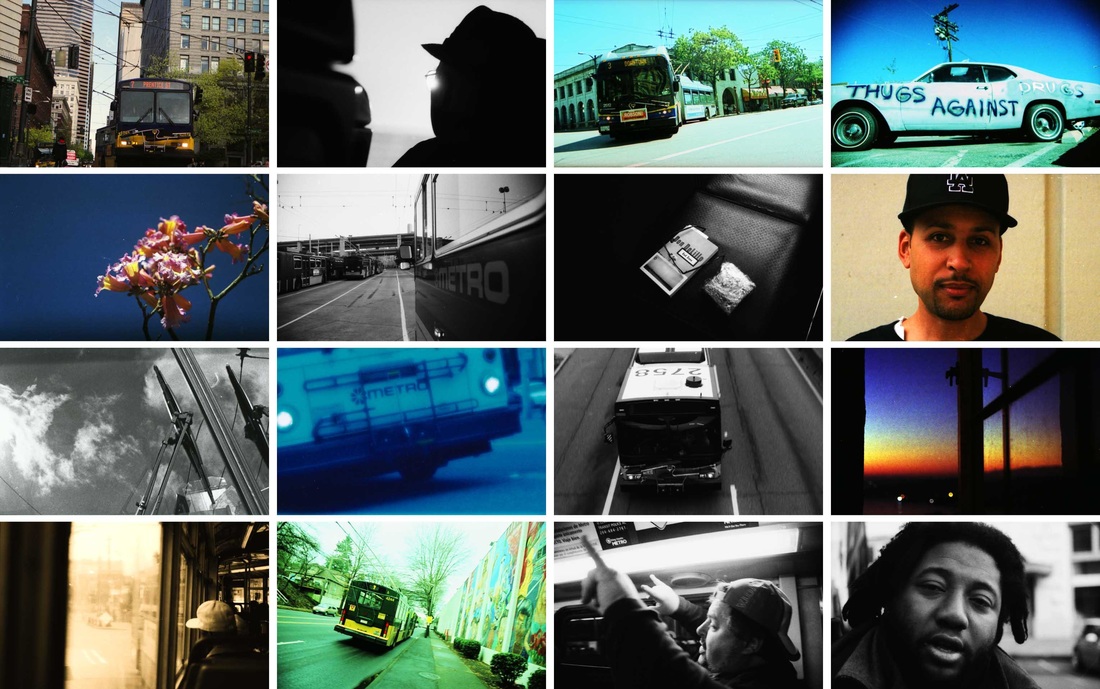
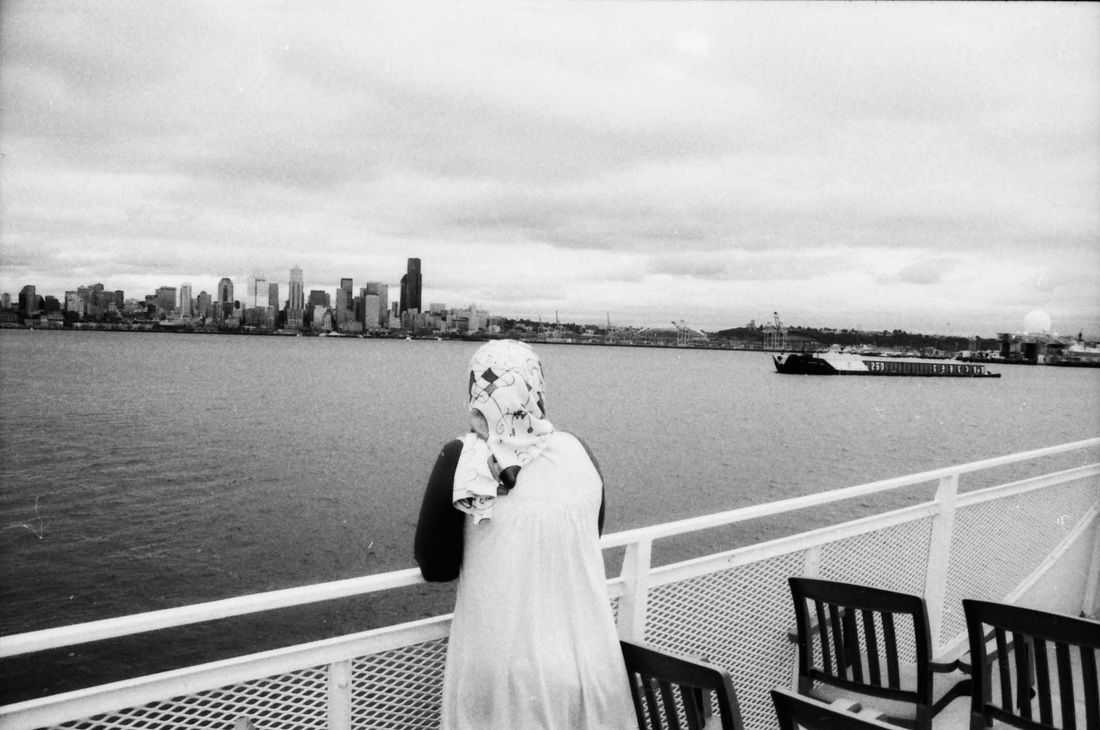
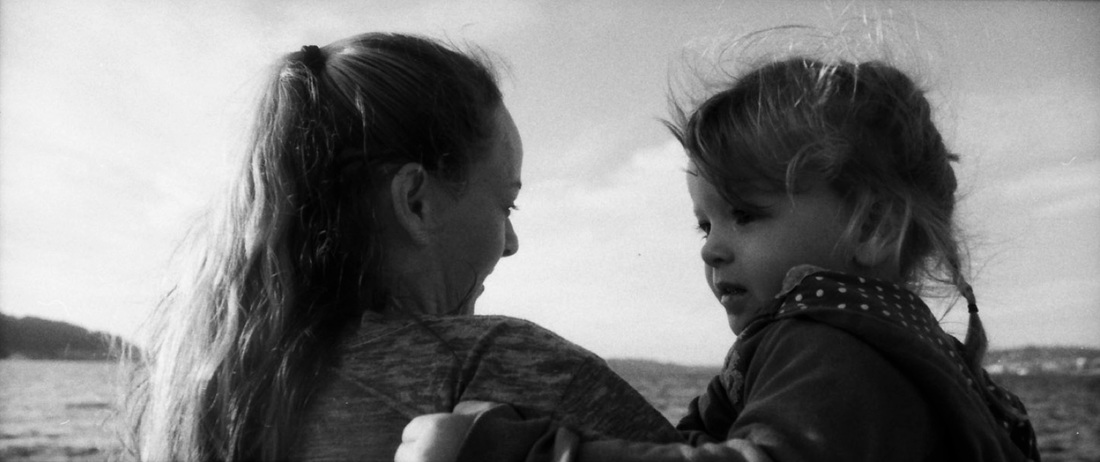
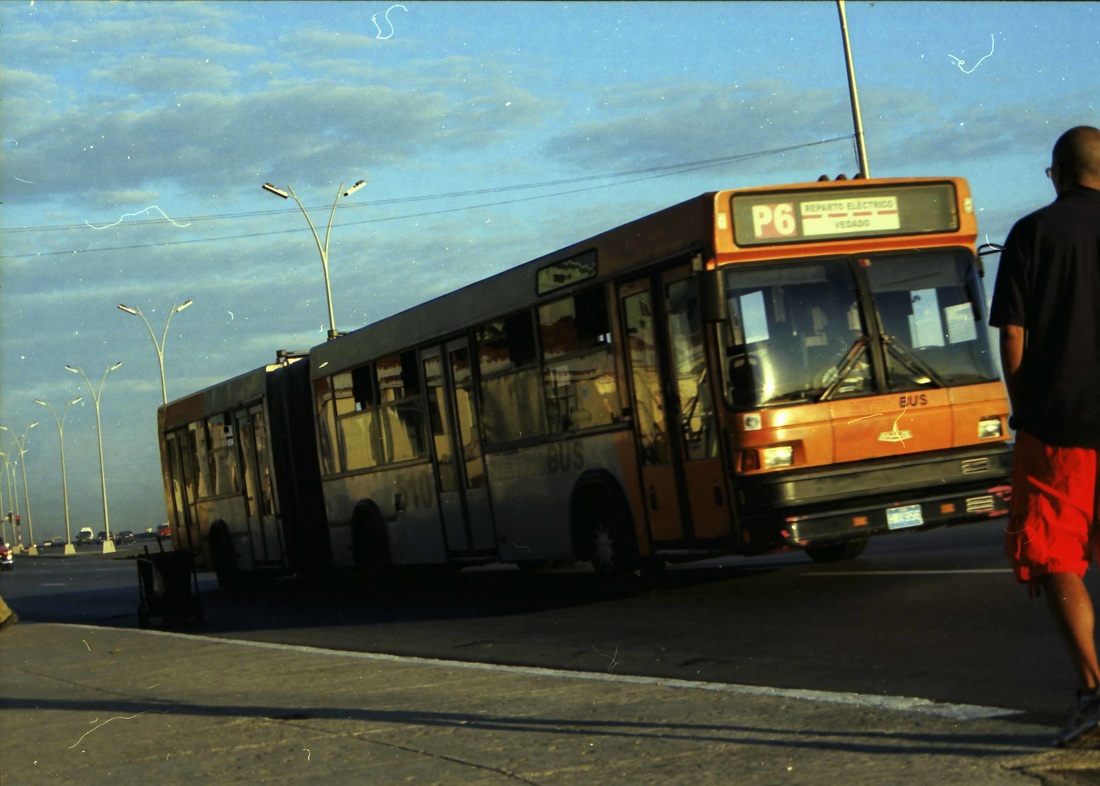
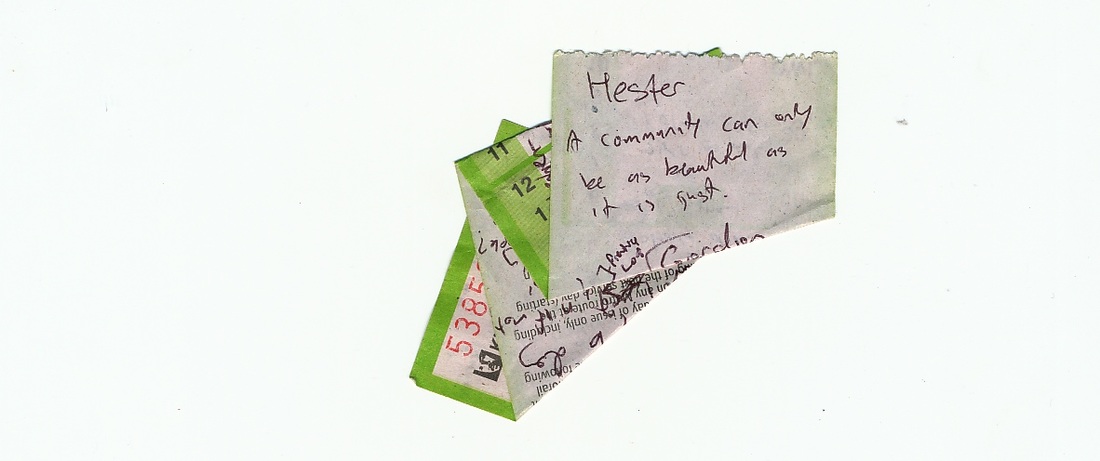

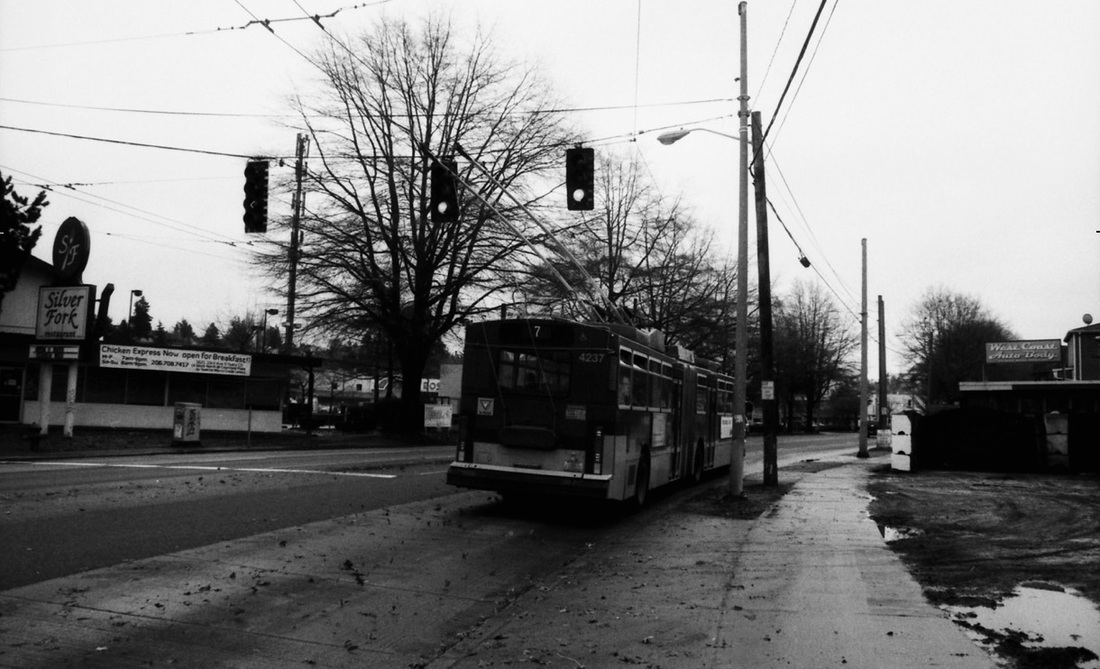
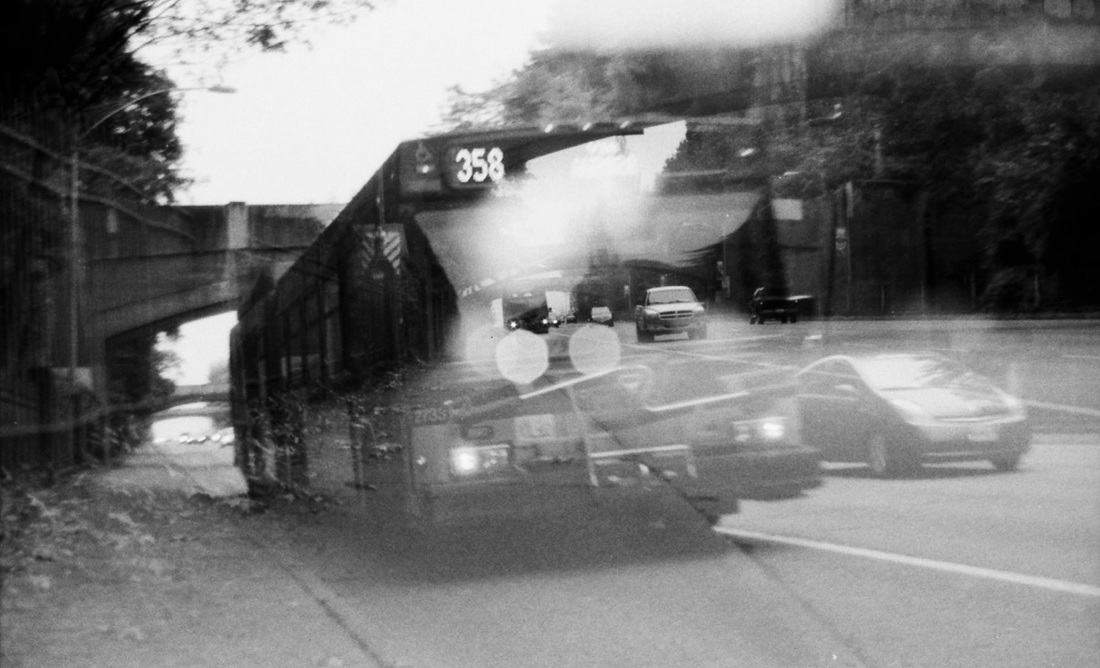
 RSS Feed
RSS Feed
